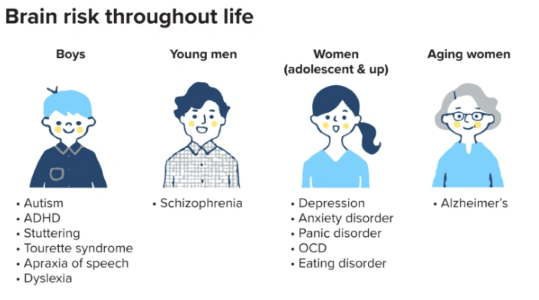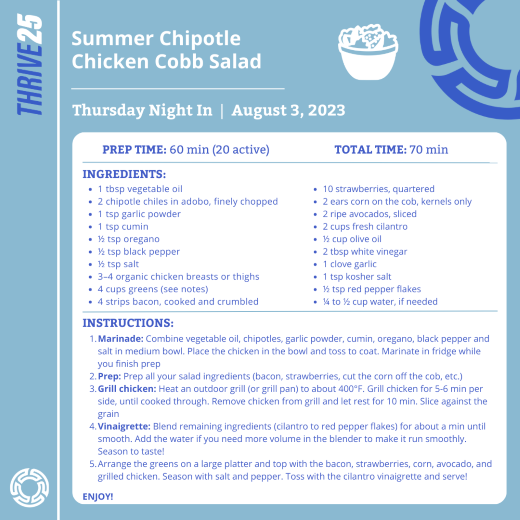Issue #221: Remote Work & Longevity
Good morning. It’s Thursday, August 3rd.
Today’s Quick Win
From the Lab: The WFH Trade-Off
Speed Read: Getting Hangry
Thursday Night In: Summer Chipotle Chicken Cobb Salad
“If you take the team out of teamwork, it’s just work. Now who wants that?”
The percentage of employees who have felt lonely at work (2022 survey from consulting firm EY).
From the Lab
“Work is a major source of socializing and connection. Change the nature of work, and you change the nature of life.” - The Good Life
Remote work has been celebrated by most employees and cursed by many employers, but it’s more nuanced than that.
With the majority of our waking hours being tied to work, if we change how we interact with the outside world during this time, we change our entire life.
Loneliness crushes our longevity and lonely work - which was already on the rise before 2020 - has obviously accelerated in the last three years:
🏠 Work From Home - 27% of Americans work remotely and 66% are remote at least part-time.
🚗 Gig Economy (solo drivers) - 16% of American jobs are now from the gig economy.
⏱️ eCommerce Factory Workers - over 10.5M Americans work in transportation or warehousing (up from just 6M a few years ago) - in such fast-paced environments that many people don’t even know the names of their colleagues.
Some of these jobs are inherently lonely, but even when we think there’s a benefit in working from home ( ✋ for Max, me, both of our wives…) there are some major downsides when it comes to our mental health.
As pointed out by this SnackNation blog post -
“It can be isolating. Being around people is good for us. Our bodies release the feel-good chemicals oxytocin and serotonin when we see people we care about – like friends, coworkers, and family members. Too much time spent alone can lead to a depressed mood…
Additionally, being away from the office can also erode the bonds between an employee and the company itself. An office – especially one with a thoughtfully designed Workplace Experience – gives your employees a sense of identity and connection to your company and its values. This declines when you spend too much time away from it.”
Work-Life Integration
We might celebrate the fact that we can be with our families - dentist appointments, school pick-up - but it’s also eroded the natural buffer between work and home life.
I’m not just talking about the “checking email/slack until 10pm” - I mean that when we have a tough day at work, we need to process those emotions before engaging with our friends/family.
This “spillover” affect can have a massive impact on how we engage at home.
Before there was a drive home, train ride - something to help us calm down and take our mind off work. But now we walk 10 feet from the home office into the living room or kitchen.
Our brains are still wrapped up in the day’s work - it’s hard to just flip the switch to being a partner, a parent.
5 Tips For Working Remote
🎥 Don’t Shy Away From the Camera - more personal interaction (with nonverbal cues) builds trust and connection compared to slack.
📈 Know Your Goals - communicate with your team about what you’re doing, what they’re doing and how it all connects to the bigger picture of the business.
🚰 Maintain the Water Cooler - whether it’s slack or fantasy sports or a scheduled virtual lunch, connect with colleagues beyond work.
🏋️ Embrace the Flexible Schedule - work away from home 1x per week, schedule an afternoon workout, get outside, have lunch with friends - engage with the world, don’t just sit at home.
🧘 Create a “Buffer” - take a beat (walk, 5 min of breathing) before going right from work to home life.
BONUS:
For you leaders out there - make sure your team has access and budget to co-working spaces, schedule in-person events (offsites or at HQ), and help facilitate the connections across your team.
Thrive25 Partner Spotlight
Magnesium is a master mineral - we covered the benefits of Magnesium in Issue #21. The only form that gets into the brain is Magnesium Threonate (MgT).
The Momentous Magnesium Threonate supplement is clinically proven to improve cognitive function and enhance the quality of sleep (see video from Dr. Andrew Huberman at minute 2:19). So it’s become part of my personal sleep routine.
Thrive25 subscribers get 15% off the entire product portfolio using code Thrive at checkout. Click HERE!
Speed Read
Health & Longevity in the News
Immune Health on Mental Disorders: Sex influences neurodiversity and rates of mental disorders throughout life. Besides obvious differences between males and females - XX or XY chromosomes and sex hormones (testosterone and estrogen) - the immune system, specifically microglia in the brain, plays a key role. (Big Think)
Big Think (Knowable Magazine)
Getting Hangry: Studies in mice have identified a cluster of cells called Agouti-Related Peptide (AgRP) neurons that likely create the sense of hunger. These neurons switch on and off depending on nutrients in the stomach. Research is showing multiple stomach-to-brain paths exist depending on the type of nutrient, which may go far in solutions for both overeating and anorexia. (Knowable)
Walking this Weekend: Why walk? Walk to live, walk to sleep and walk to explore. Here’s a walking guide for 7 urban trails from Paris to Seoul to St. Louis. No matter where you live, find your trail this weekend and explore! (NYTimes)
Thursday Night In | Summer Chipotle Chicken Cobb Salad
This recipe has become a weekly staple at Max’s house this summer. It screams the season and delivers many health benefits - fiber, healthy fats, antioxidants, and essential vitamins and minerals. Plus the vinaigrette is tasty and super versatile - it can enhance most grilled dishes for the next 3 days after making, even those morning eggs.
Thanks for joining us today!
Check out the latest workout videos on our YouTube channel
Got feedback, recommendations or stories to share? Tell us what’s on your mind here
Want this direct to your inbox? Sign up here
Why Thrive25
We’re 40-something dads that felt our bodies and minds start to slow down and we’re not ready for that. We found too much information on every subject. So we started Thrive25 to transform what we’ve learned into something useful for the rest of us to spend just 3-5 min a day to optimize our health & longevity.
This newsletter is for you and we truly value your feedback. Never hesitate to reach out to us at team@thrive25.com.
To health!
Sign up for free:
The information in this newsletter is for informational purposes only and may not be appropriate or applicable based on your individual circumstances. Thrive25 Labs LLC does not provide medical, professional, or licensed advice. Please connect with your healthcare professional for medical advice specific to your health needs.









